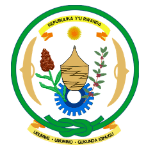Background
The Rwanda malaria & NTD (neglected tropical diseases) scorecard and RMNCAH (reproductive, maternal, newborn, child and adolescent health) scorecard were initiated in 2017 and track progress of indicators that reflect the priorities and objectives outlined in the malaria, NTDs and RMNCAH national strategic plans.
How they work
The scorecards are produced directly in DHIS2 and discussed at several national level meetings including senior management meetings and at the sub-national level during district coordination meetings and health facility supervision meetings.
In September 2020, the integrated workshop was organised and a scorecard indicator review was conducted. At that time, few key NTD indicators were integrated into the malaria scorecard. An RMNCAH scorecard indicator review was also completed.
In December 2020, those scorecards were decentralised in an integrated workshop, with all districts trained on the use of the scorecard tool to further enhance data-driven decision making. In 2022, a malaria & NTD indicator review was conducted and more NTD indicators were added. Civil society organisations were also trained on the use of the scorecard for accountability and action.
Impact
Data quality
On the malaria & NTD scorecard, a close review of the data helped to identify how to improve the collection of data from community health workers and facilities to enhance both data quality and adherence to national case management guidelines.
As an example, an analysis of the scorecard by the malaria and NTD division revealed that health centres were using too many rapid diagnosis tests instead of blood smears. Consultation with the health centres revealed that most of the rapid diagnosis tests were being used by health posts as recommended by national guidelines. A recommended action was taken to separate health centres and health posts in the health management information system to correctly segment the data by type of facility to confirm compliance with guidelines.
On the RMNCAH scorecard, a scorecard analysis revealed an issue of denominators for some of the indicators such as on antenatal care and on family planning which led to a review and updating of those denominators.
Service delivery improvements
The scorecards are used for regular support supervision, allowing evidence-based supervision including a follow-up on areas of underperformance.
The malaria & NTD scorecard has been used to address low coverage of long-lasting insecticidal nets (LLINs) through antenatal care. Technical staff followed up with the health facilities and found that there was a stockout of long-lasting insecticidal nets for routine services, which was not notified as the nets were available for the mass campaign. A long-lasting insecticidal nets delivery was immediately triggered. Also, it was found that some health centres were not complying with the guidelines for long-lasting insecticidal nets distribution. Staff were re-oriented.
If the scorecard shows red for people with uncomplicated malaria receiving treatment at community level, this automatically triggers a supervision, which can be completed online, through phone calls or email, allowing for real-time problem solving. In certain catchment areas, this has led to the timely identification of stockouts followed by the distribution of missing malaria commodities.
The malaria & NTD scorecard is currently used by civil society organisations supporting the malaria programme to request funds and orient the interventions where the scorecard indicators are underperforming.
It is the same for RMNCAH, where the scorecard is discussed in district coordination meetings and in technical working groups and sub-groups to drive actions and orient where partners can put more efforts.
Key success factors
- Fully integrated within the health management information system (DHIS2)
- Shared with partners and civil society organisations
- Decentralised
Partners engaged in supporting the scorecards
- World Health Organization
- US President’s Malaria Initiative
